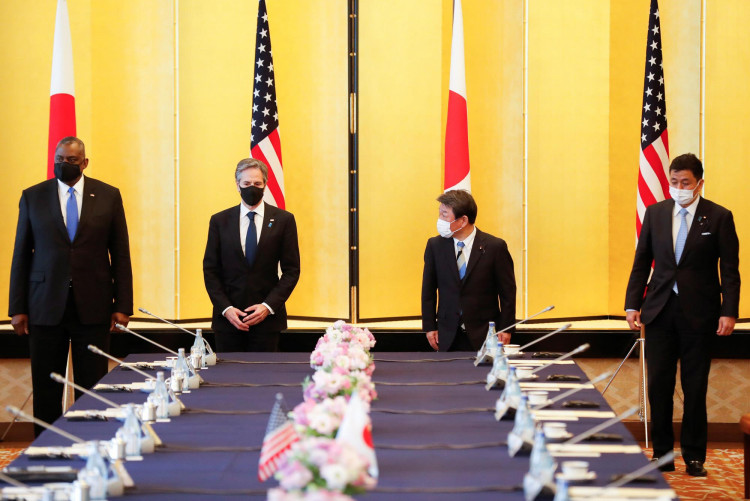U.S. State Secretary Antony Blinken and Defense Secretary Lloyd Austin met their counterparts in Japan on Tuesday, underscoring a focus by the new Biden administration on key alliances in Indo-Pacific in the face of an ascendant China and a potentially nuclear-armed North Korea.
The meeting commonly known as the "2+2" in Tokyo with Foreign Minister Toshimitsu Motegi and Defense Minister Nobuo Kishi marked the first foreign diplomatic trip for Blinken and Austin under the Biden administration.
"We really come to reaffirm the fact that the alliance is as we'd like to say the cornerstone of our peace, security and prosperity," Reuters quoted Blinken as saying in remarks to U.S. consulate staff in Tokyo.
Issues on the talks cover freedom of navigation in the East and South China Seas and microchip supply-chain security to the military takeover in Myanmar and North Korea's nuclear threat.
From Tokyo, Blinken and Austin will then proceed to South Korea on March 17. Afterwards, the State secretary is expected to meet his Chinese counterparts, Wang Yi and Yang Jiechi in Anchorage in the U.S. state of Alaska.
South Korea is unlikely to get involved in the dispute between the U.S. and China. Although the U.S. is South Korea's main security provider, having intervened in the 1950-53 Korean War to defeat invading forces from the north, China is by far the biggest trading partner of South Korea.
Finding common ground on how to pressure the Kim Jong Un regime back to dialogue will be another key focus during the two U.S. officials' visits to Tokyo and Seoul.
North Korea warned the Biden administration against "causing a stink" if it wants peace, North Korean state media reported on Tuesday.
Biden has yet to make public his strategy toward North Korea, but a policy evaluation is underway.






